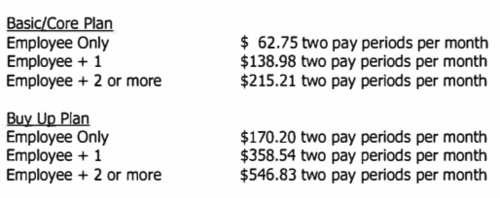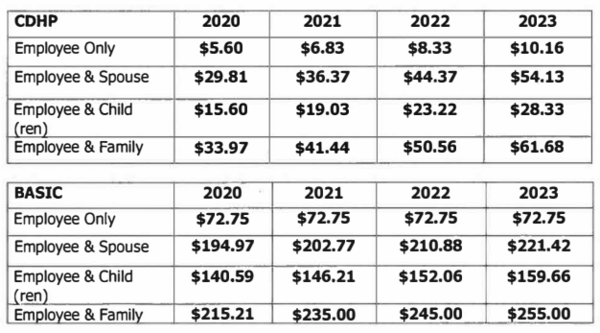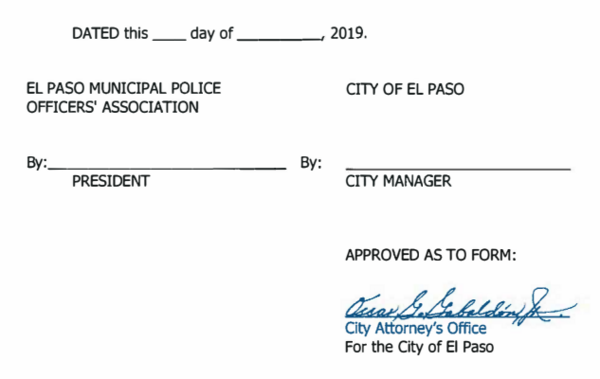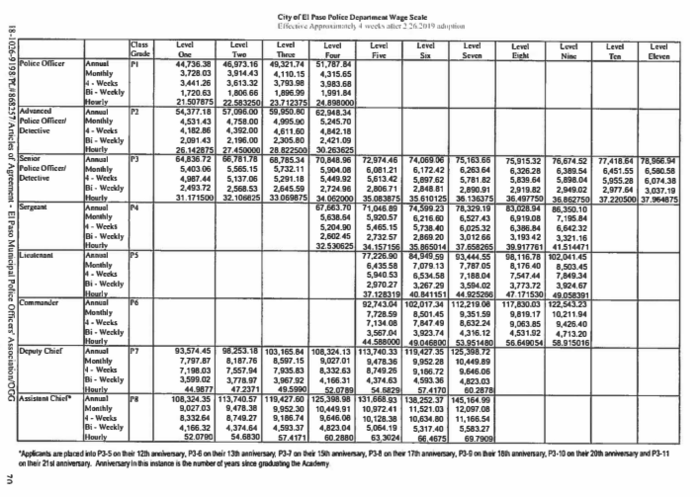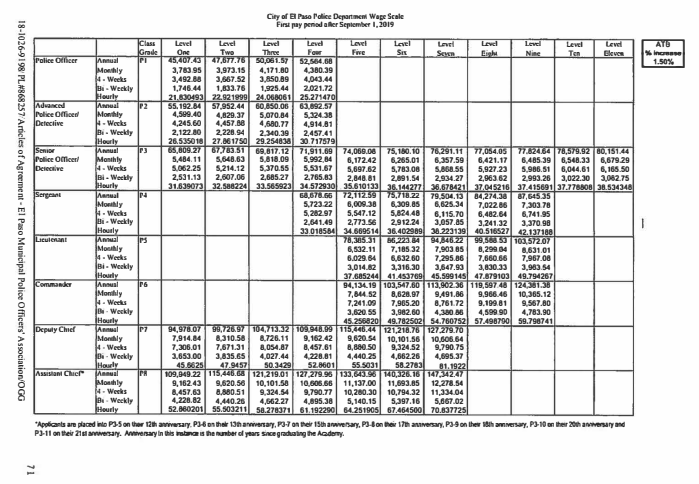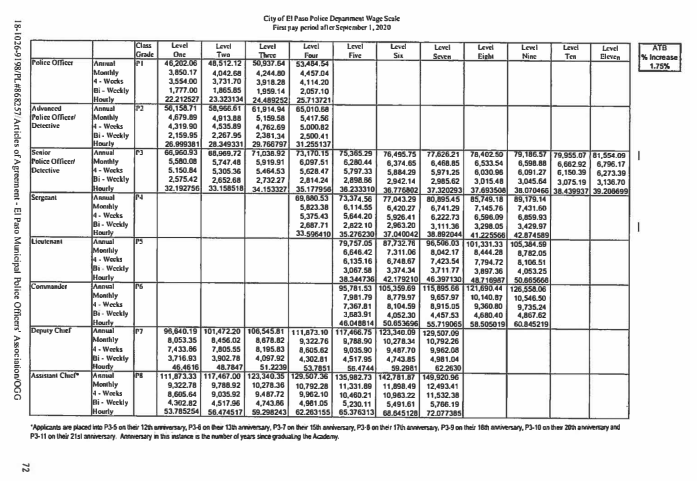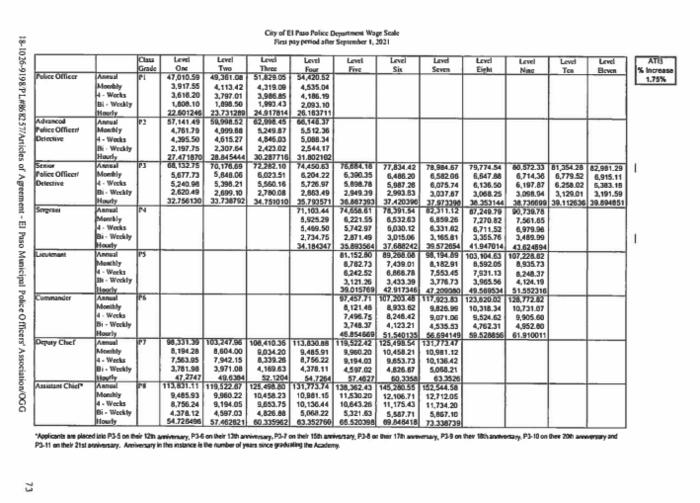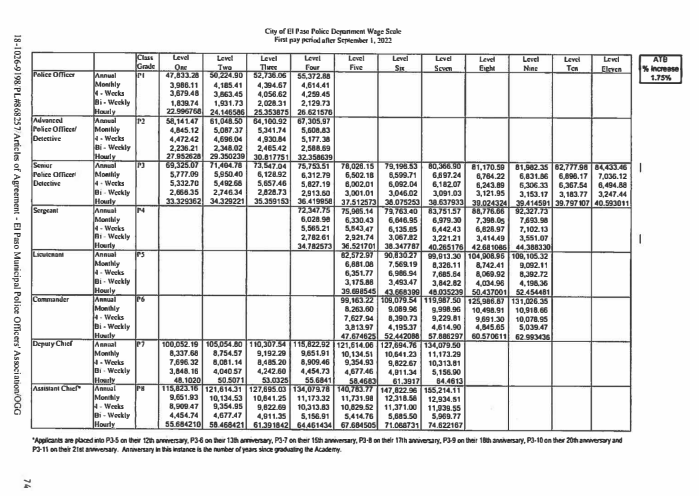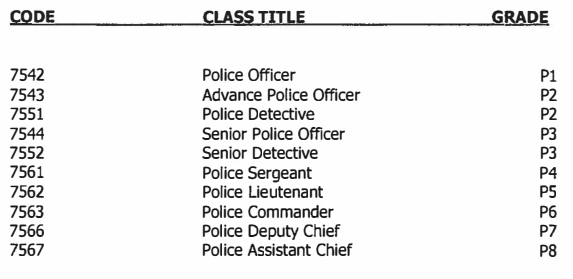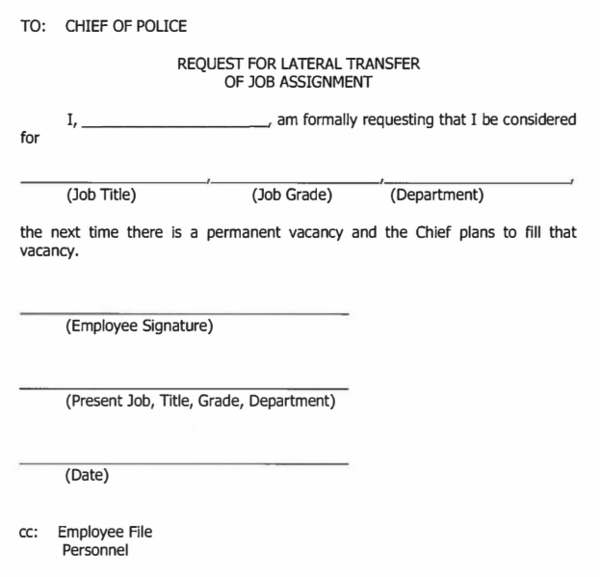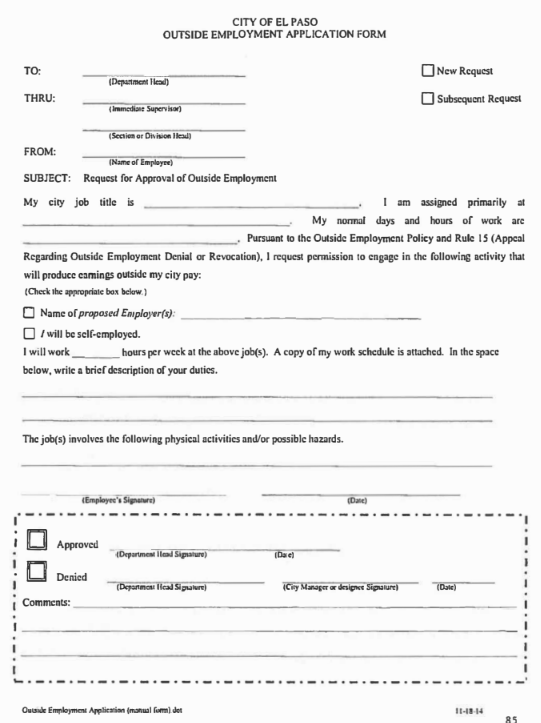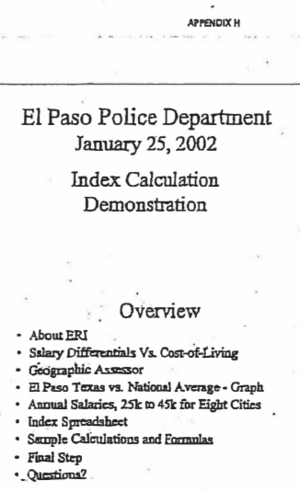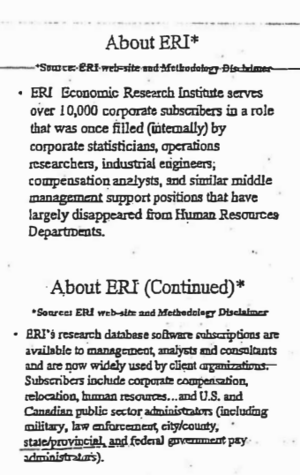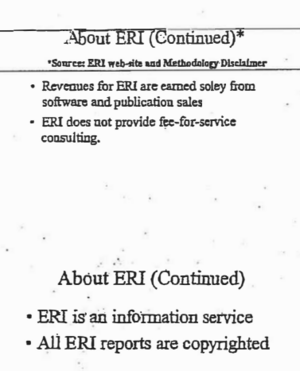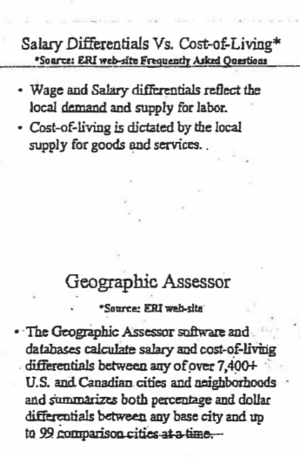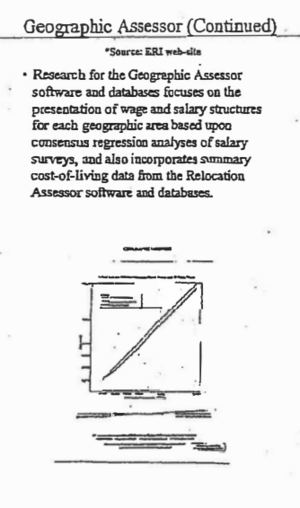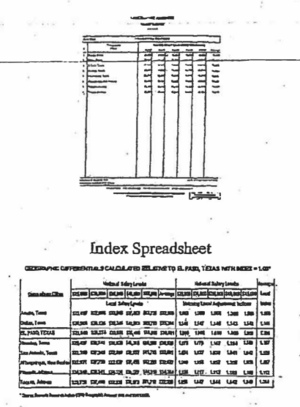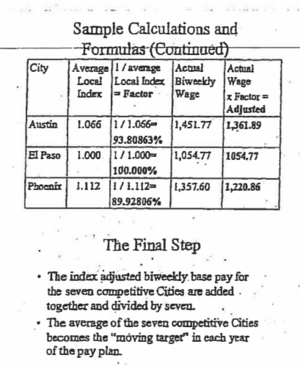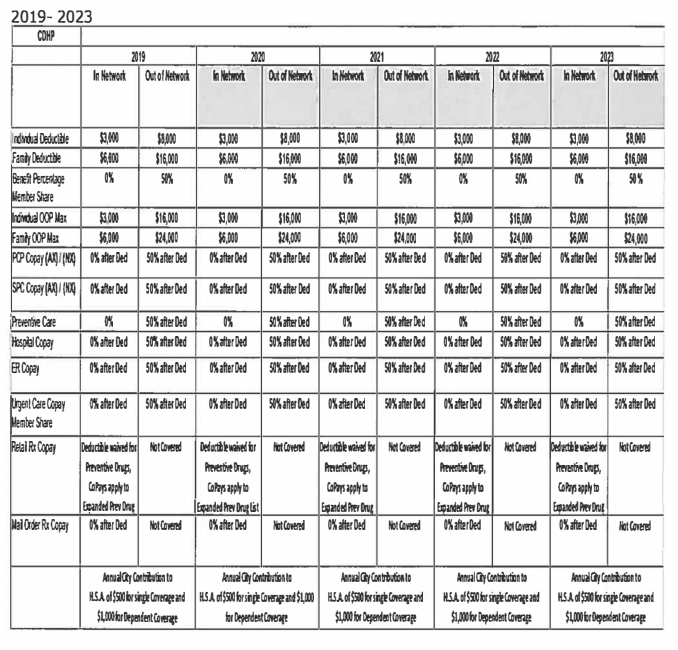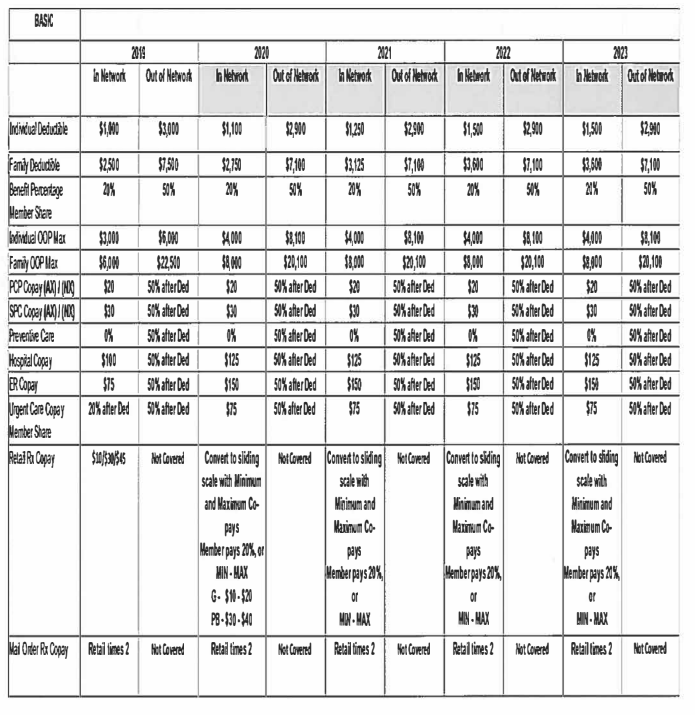| “
|
Section 1
An employee shall accumulate sick leave at the rate of 10
hours per month from the first day of employment.
Section 2
An employee has unlimited accumulation of sick leave.
Section 3
As an incentive to minimize abuse of sick leave, an employee
shall be allowed to use, subject to the needs of the department, SO hours of the
allotted 120 hours sick leave per year for personal business, either on an hourly
or full-day basis.
Section 4
An officer shall be allowed to take sick leave with pay for
Immediate Family (as defined within City Policy or Civil Services Rules at the signing of the contract) related illnesses. Such request must be made at least
one hour prior to the officer's shift and shall be limited to two days per occasion.
An occasion can mean per dependent or for different types of medical
appointments.
Section 5
Workers' compensation appeals shall be filed with the Texas
Division of Workers' Compensation of the Texas Department of Insurance.
Accident with pay (AWP) appeals shall be processed in accordance with Section
4.4 of City Ordinance No. 8064. The AWP provisions will comply with Ordinance
8064, Section 4.4 or any revisions to this Ordinance, with the following
modifications:
- (a) The requirement to report an occupational injury within 48 hours will be measured from the point that the Officer knew s/he had received a work- related injury if the Officer had no reasonable basis to suspect s/he was injured. For the purpose of this Agreement, the date of the occurrence of an injury is the date the employee knew or should have known the injury was job related.
- (b) AWP is an employer's salary supplement that is payable when an Officer sustains an injury or illness covered by workers compensation. Officers who receive an injury or illness while engaged in a law enforcement related activity which activity would require peace officer status may be granted AWP status extensions in sixty (60) calendar day increments, after the initial injury leave, if they provide current medical evidence which indicates such Officer has a recoverable injury or illness. Current medical evidence will be provided to the Chief and will reflect any change in the Officer's status. A report of current medical status from the Officer's treating physician shall suffice as current medical evidence. A "recoverable injury or illness" means such injury or illness, that when the Officer is released to return to work, the Officer will in the opinion of his or her physician, be able to perform the essential functions of the position which were required at the time of the injury or illness. While on AWP employees shall not be required to use sick leave or vacation leave. Employees shall continue to accrue all sick and vacation leave while on AWP status.
- (c) If AWP leave is approved, AWP leave will be available for the first seven (7) calendar days of disability not initially paid by workers' compensation benefits. The officer will not be required to use annual or sick leave for this first seven days of disability.
Section 6
The Police Chief retains the right to require a medical
certificate in a form satisfactory to the Chief before an employee shall be paid sick leave under the provisions of this Article. The department will only require
doctor's notes of bargaining unit employees who:
- (a) Call in sick the calendar day before the calendar day of or the calendar day after a holiday;
- (b) Call in sick more than two calendar days in a row; or
- (c) Have been investigated and shown to be abusing sick leave by IAD and order to by the Chief of Police.
Section 7
The employee, the employee's heirs or the employee's legal
representative shall be compensated in cash for any unused accumulation of sick
leave up to the maximum of 700 hours at the employee's basic hourly rate of
pay, at the time of the employee's death, resignation, termination or retirement.
In the case of any unused accumulation of sick leave in excess of 700 hours, an
employee who has completed ten years of service, the employee's heirs or the
employee's legal representative shall be compensated in cash for such hours of
unused sick leave in excess of 700 hours up to a maximum of 1200 hours in an
amount equal to one hour's pay for every four hours of unused, accumulated
sick leave at the employee's hourly rate of pay, at the time of the employee's
death, resignation, retirement or termination.
Section 8
Any employee who is entitled to receive accumulated sick
leave cash compensation under this Article shall have the option to be paid the
same in a lump sum payment. If, during the term of this Agreement, the City
allows substantially all non-bargaining unit employees to apply such
compensation to payment of the employee's share of costs associated with his
retirement health insurance, it shall also allow bargaining unit employees to do
so under the same terms.
Section 9: Shared Leave Program
A. POLICY:
This program allows covered employees to voluntarily donate accrued sick and/or vacation leave to a bank for the use of, and to help alleviate the financial hardship caused by "catastrophic injuries or illnesses" or "life-threatening illnesses or injuries" as defined herein, which force an employee to exhaust all paid leave time earned and subsequently lose compensation from the City. The EPMPOA Board of Directors will be the final and binding decision when it comes to approval of Shared Leave or definitions of "catastrophic injuries or illnesses" or life-threatening illnesses or injuries.
This policy does not circumvent the application of the Family and Medical Leave Act (FMLA) nor does it alter or revise any City policy or procedure regarding the application of the FMLA. Nothing in this policy shall be construed so as to be a legal entitlement to receive a leave of absence nor to obligate the City to grant a leave of absence except as may be granted to an employee pursuant to the City Charter and the Civil Service Commission Rule 13. Employees who are not taking FMLA leave nor been granted a leave of absence are not permitted to receive shared leave under this policy.
Shared Sick Leave is a benefit available to covered employees within the parameters of this program and any Shared Leave granted is not considered earned sick leave for which a covered employee may be compensated for cash upon the employee's death, resignation, termination or retirement pursuant to Article 15, Section 8. Any unused Shared Leave reverts back to the program in accordance with Section 9, E, 5 of this Article.
B. DEFINITONS:
- 1. "Administrator" means the person or persons designated as Administrator by the Board of the El Paso Municipal Police Officers Association.
- 2. "Bank" means the combined sick and vacation leave donated by covered employees for allocation to eligible recipients.
- 3. "Board" means the Shared Leave Bank Board which consists of the authorized designees of the EPMPOA.
- 4. "CBA" means the Articles of Agreement by and between the City of El Paso and the El Paso Municipal Police Officers Association (EPMPOA).
- 5. "Life-threatening illness or injury" is defined as a severe medical condition, identified as life-threatening by a medical doctor, which is non-job-related and which has a prolonged negative effect on the covered employee's or family member's health and incapacitates the employee or family member for an extended period of time. Such conditions require in-patient hospital care, or prolonged out-patient care as determined to be medically necessary by a licensed physician.
- 6. Such conditions include but are not limited to Cancer, AIDS, Heart Attack and Stroke.
- 7. "Catastrophic Injury or Illness" is defined as an unanticipated, non-job related, not self inflicted injury or illness, and requires a covered employee's absence without pay for a period of at least two weeks after all leave balances have been exhausted. This is further defined as those illnesses or accidents including vehicle accidents requiring confinement in a hospital or accidents requiring extensive medical care of an unforeseeable nature. Examples include life threatening injury or illness, cancer, AIDS, heart surgery, stroke, etc. Catastrophic illness or injury shall not include elective surgery or unforeseeable medical care rendered as a result of something other than injury or disease.
- 8. "Contributor" means a covered employee who voluntarily provides a written request for transfer or his/her sick or vacation leave to the bank.
- 9. "Covered Employee" means those employees (police officers) who are covered by the terms of the CBA and who meet the requirements set forth under this section for eligibility as a recipient.
- 10. Recipient" means an eligible covered employee whom the Administrator has approved to receive leave from the bank.
- 11. "Work day" means any day normally or regularly scheduled for the transaction of business.
- 12. "Family member" means spouse, child or parent.
C. PROGRAM RESPONSIBILITIES:
The Administrator is responsible for:
- 1. Reviewing requests from applicants to decide if the covered employee's situation qualifies for the program and determining the amount of leave to be assigned from the bank up to the eligible amounts of both designated and undesignated contributions.
- 2. Publicizing the program and the need for contributions. Such publicizing will be done upon establishment of the bank and periodically thereafter when the Administrator determines that there is an insufficient leave balance to meet requests. Publicizing will be done in a manner that is cost effective, as determined by the Administrator.
- 3. Keeping records of all requests to either donate leave to the bank or receive leave from the bank, and the appropriate action taken on each request.
- 4. Forwarding all approved requests of donors and recipients to the designated EPMPOA member acting on behalf of the administrator.
- 5. Crediting the Shared Leave Bank with the amount of time contributed by the donor and shall deduct a corresponding amount of time from the donor's accrued sick or vacation leave balance. Based on the information provided by the Administrator, an appropriate notation will be made on the donor's sick or vacation leave record that the leave was donated to the Shared Leave Bank.
- 6. Advising the City to credit the approved amount of leave taken from the bank to the sick leave account of the recipient. An appropriate notation will be made on the recipient's sick leave record that the leave was received from the Shared Leave Bank.
- 7. Advising each prospective donor and recipient of the action taken on their request.
- 8. Notifying the Payroll and Records Supervisor when an approved leave recipient loses their right to continue participation in the Shared Leave Program.
- 9. Providing a quarterly report to the Chief of Police regarding the numbers of hours collected and used by covered employees under this program, and the balance of hours contained in the undesignated pool of contributions.
D. MEDICAL CONSULTATION:
A Medical Consultant selected by the Administrator may advise the Administrator on whether a request qualifies as either a life threatening injury or illness or qualifies as a catastrophic injury or illness or both categories, and whether or not the injury is known to be recoverable in consideration of the job duties of the covered employee.
E. APPL YING TO BECOME A RECIPIENT.
- 1. A covered employee must have exhausted all of his/her available accrued leaves (including Special Sick Leave as authorized) before being eligible to apply for Shared Leave.
- 2. The covered employee or authorized representative must complete the Shared Leave Application Form and send it, with the Medical Certification Form attached, to the Administrator via Office of the Chief. THE NAME OF THE RECIPIENT WILL BE KEPT CONFIDENTIAL TO THE EXTENT ALLOWED BY LAW, unless the employee authorizes the release of information contained in the application form or within the supporting documentation by the City to publicize the reason for the need for leave to potential donors.
- 3. The Medical Certification should indicate the:
- a. Nature of the illness or injury for which the physician is treating the covered employee or covered employee's family member;
- b. The diagnosis; and
- c. Whether or not the condition qualifies as either a life-threatening injury or illness or qualifies as a catastrophic injury or illness or both categories, and whether or not the injury is known to be recoverable in consideration of the job duties of the covered employee.
- The Medical Certification form must be submitted with the request. If the Medical Certification form is incomplete, the request will be denied
F. CONTRIBUTING LEAVE
- 1. Contributions. Covered employees wishing to donate leave should complete the Shared Leave Contribution Form and submit it directly to the Administrator or the Administrator's designee.
- 2. Covered employees may be informed of the need for contributions by work section, division or department as deemed appropriate by the Administrator. The Chief of Police will take appropriate steps to ensure that no undue pressure or coercion, either implicit or explicit, is placed on any individual employee by any other employee to make a donation.
- 3. Covered employees may contribute not less that 8 hours nor more than 80 hours of accrued leave per fiscal year, per request. Separating covered employees must submit their contribution request at least 30 days before their effective separation date.
- 4. A covered employee contributing sick leave must have at least 120 hours of sick leave left in their account after making their contribution. Covered employees having less than 120 hours of sick leave in their account will be denied the opportunity to contribute sick leave at that time, but may resubmit a request to contribute after their accrued sick leave balance is increased to the level where the covered employee would have at least 120 hours of sick leave left after making their contribution.
- 5. A covered employee contributing vacation leave must be eligible to use vacation leave and have at least 40 hours of vacation leave in their account after making their contribution, or they will be denied the opportunity to contribute vacation leave at that time.
- 6. All donation of leave to the shared leave balance are strictly voluntary, but in order for covered employees to become eligible to receive leave form the shared leave balance, they must donate at least 8 hours of leave to the shared leave balance at the beginning of each calendar year, or they shall relinquish their eligibility to withdraw leave from the shared leave balance for that calendar year. Covered employees with less than 1 year on the job, beginning on the date of graduation from the academy or other initially-required training, are eligible to use the shared leave program and are exempt from the obligation to donate leave as a requirement for eligibility.
G. ELIGIBLE RECIPIENT
- 1. Shared leave may be utilized from the undesignated pool of contributions only because of a life-threatening injury or illness of the covered employee. Shared leave may be designated to specific individuals using the catastrophic injury and illness as well as the life-threatening injury and illness definitions. Shared leave may also be requested on behalf of covered employees whose absence is required to care for family members who meet the definition of catastrophic injury or illness, in each case to be fully documented as required by the Administrator.
- 2. An eligible recipient will be granted up to 120 days ( calculated based on eight hour days) per fiscal year of leave designated for him/her by name. Under no circumstances may a recipient draw over 120 days per fiscal year.
- 3. A recipient absent on Shared Leave (that is, leave received from the bank) is treated for all purposes as if the recipient were absent on earned sick leave, i.e., he/she would be eligible for paid holidays, normal payroll deductions would be made, and paid leave would be accrued.
- 4. A covered employee is ineligible to receive Shared Leave if the employee:
- a. Has a pattern indicative of sick leave misuse within the past 12 months (from the date of the Shared Leave request)
- b. Is seeking to receive leave for an occupational (i.e., on-the-job) illness or injury. Provided, however, any qualified employee whose report of injury has been disputed by the City's Workers Compensation Third Party Administrator and where no final determination of comparability has been made shall be eligible to make conditional request for leave in accordance with the terms of this policy. Such request is upon the condition that in the event the injury is determined to be a compensable injury under the Workers Compensation Act, the employee is deemed to agree to and will cooperate with the City to make the shared leave program and/or the City of El Paso whole for any leave that the employee had received from the program, including but not limited to an agreement that the City may deduct any overpayment from future paychecks or reduce any accrued leave balances.
- c. Is on active duty in the U.S. Armed Forces or has been recalled to duty to receive treatment.
H. APPEALS.
- 1. Decisions made by the Administrator, in regard to a covered employee's eligibility to receive shared leave, shall be subject to appeal to the Shared Leave Bank Board. The Board shall meet as required by the Administrator and decide appeals by majority vote. A tie vote will leave the Administrator's decision in place. Board decisions may be appealed to the Civil Service Commission.
- 2. The Administrator and/or Shared Leave Bank Board may request additional information to determine if a condition qualifies as either a catastrophic injury or illness or a life-threatening injury or illness.
I. TERMINATION OF BENEFITS.
- 1. The participating covered employee will immediately lose their right to Shared Leave benefits and all unused Shared Leave in their sick leave account will revert to the Shared Leave Bank if the employee:
- a. Dies;
- b. Separates from employment;
- c. Voluntarily cancels his/her participation in the Shared Leave Program;
- d. Exhausts the maximum approved Shared Leave given to the employee;
- e. Commits fraud or misrepresentation in the request or use of Shared Leave benefits.
- 2. The estate of a deceased covered employee (recipient) is not entitled to any benefit for unused leave acquired by that employee from the Shared Leave Bank. Any such unused leave will revert to the Shared Leave Bank.
Section 10. The members of the collective bargaining unit shall be subject to City's Return to Duty with Medical or Physical Restrictions Policy in effect upon execution of this Agreement.
F. CONTRIBUTING LEAVE
- 1. Contributions. Covered employees wishing to donate leave should complete the Shared Leave Contribution Form and submit it directly to the Administrator or the Administrator's designee.
- 2. Covered employees may be informed of the need for contributions by work section, division or department as deemed appropriate by the Administrator. The Chief of Police will take appropriate steps to ensure that no undue pressure or coercion, either implicit or explicit, is placed on any individual employee by any other employee to make a donation.
- 3. Covered employees may contribute not less that 8 hours nor more than 80 hours of accrued leave per fiscal year, per request. Separating covered employees must submit their contribution request at least 30 days before their effective separation date.
- 4. A covered employee contributing sick leave must have at least 120 hours of sick leave left in their account after making their contribution. Covered employees having less than 120 hours of sick leave in their account will be denied the opportunity to contribute sick leave at that time, but may resubmit a request to contribute after their accrued sick leave balance is increased to the level where the covered employee would have at least 120 hours of sick leave left after making their contribution.
- 5. A covered employee contributing vacation leave must be eligible to use vacation leave and have at least 40 hours of vacation leave in their account after making their contribution, or they will be denied the opportunity to contribute vacation leave at that time.
- 6. All donation of leave to the shared leave balance are strictly voluntary, but in order for covered employees to become eligible to receive leave form the shared leave balance, they must donate at least 8 hours of leave to the shared leave balance, upon request of the administrator or at the beginning of each calendar year (depending on the hours in the pool), or they shall relinquish their eligibility to withdraw leave from the shared leave balance for that calendar year. Covered employees with less than 1 year on the job, beginning on the date of graduation from the academy or other initially-required training, are eligible to use the shared leave program and are exempt from the obligation to donate leave as a requirement for eligibility.
G. ELIGIBLE RECIPIENT
- 1. Shared leave may be utilized from the undesignated pool of contributions only because of a life-threatening injury or illness of the covered employee. Shared leave may be designated to specific individuals using the catastrophic injury and illness as well as the life- threatening injury and illness definitions. Shared leave may also be requested on behalf of covered employees whose absence is required to care for family members who meet the definition of catastrophic injury or illness, in each case to be fully documented as required by the Administrator.
- 2. An eligible recipient will be granted up to 120 days (calculated based on eight hour days) per fiscal year of leave designated for him/her by name. Under no circumstances may a recipient draw over 120 days per fiscal year.
- 3. A recipient absent on Shared Leave {that is, leave received from the bank) is treated for all purposes as if the recipient were absent on earned sick leave, i.e., he/she would be eligible for paid holidays, normal payroll deductions would be made, and paid leave would be accrued.
- 4. A covered employee is ineligible to receive Shared Leave if the employee:
- a. Has a pattern indicative of sick leave misuse within the past 12 months (from the date of the Shared Leave request)
- b. Is seeking to receive leave for an occupational (i.e., on- the-job) illness or injury. Provided, however, any qualified employee whose report of injury has been disputed by the City's Workers Compensation Third Party Administrator and where no final determination of comparability has been made shall be eligible to make conditional request for leave in accordance with the terms of this policy. Such request is upon the condition that in the event the injury is determined to be a compensable injury under the Workers Compensation Act, the employee is deemed to agree to and will cooperate with the City to make the shared leave program and/or the City of El Paso whole for any leave that the employee had received from the program, including but not limited to an agreement that the City may deduct any overpayment from future paychecks or reduce any accrued leave balances.
- c.
- d. Is on active duty in the U.S. Armed Forces or has been recalled to duty to receive treatment.
H. APPEALS.
- 1. Decisions made by the Administrator, in regard to a covered employee's eligibility to receive shared leave, shall be subject to appeal to the Shared Leave Bank Board. The Board shall meet as required by the Administrator and decide appeals by majority vote. A tie vote will leave the Administrator's decision in place.
- 2. The Administrator and/or Shared Leave Bank Board may request additional information to determine if a condition qualifies as either a catastrophic injury or illness or a life- threatening injury or illness.
I. TERMINATION OF BENEFITS.
- 1. The participating covered employee will immediately lose their right to Shared Leave benefits and all unused Shared Leave in their sick leave account will revert to the Shared Leave Bank if the employee:
- a. Dies;
- b. Separates from employment;
- c. Voluntarily cancels his/her participation in the Shared Leave Program;
- d. Exhausts the maximum approved Shared Leave given to the employee;
- e. Commits fraud or misrepresentation in the request or use of Shared Leave benefits.
- 2. The estate of a deceased covered employee (recipient) is not entitled to any benefit for unused leave acquired by that employee from the Shared Leave Bank. Any such unused leave will revert to the Shared Leave Bank.
Section 10
The members of the collective bargaining unit shall be
subject to City's Return to Duty with Medical or Physical Restrictions Policy in
effect upon execution of this Agreement.[2]
|
”
|




